 New Year Celebrations are a wonderful way to take time to contemplate and set goals for the coming year - or open up to allow for change to be a good thing in our lives! In most cultures there is some form of New Years Day celebrations, sometimes unrelated to the western calendar. Some take the traditions more seriously in terms of requiring contemplation, prayer and forgiveness, while other traditions simply are ways to celebrate, honor the family, or come together as a community to welcome in any changes (out with the old, in with the new). The history is less important for this blog as the fact that it has been a tradition carried on by most every culture and/or religion throughout history (some believe it was the Mesopotamians (Modern Iraq) over 2,000 before the common era (BCE), while others date it to Julius Cesar around 46 BCE to celebrate the birthday of Janus the God of January). For that reason, the idea of celebrating the New Year carries different meaning depending on where one is living in the world. Most celebrations include the idea of it being a time to put the past behind and welcome in new opportunities - "out with the old and in with the new." In western culture most view it as a time consciously reflect on our lives and to come up with resolutions or goals to reach in the new year, a time to change habits that no longer serve us. Whatever your background is with respect to this celebration be easy on yourself! Try to set goals you can reasonably attain, and if you exceed them, then GREAT! Setting too many goals or setting unreasonable standards are ways for us to judge ourselves harshly later. A good exercise might be to pick two or three reasonable goals, and really endeavor to consciously achieve them. One of my goals for this year is to set specific times each day (not long maybe two 10 minute time periods) to sit in stillness. To just be in the moment. Another goal is to live less distractedly - turn my cellphone off for good blocks of time (yikes - words with friends in moderation!!!!). These are goals I hope will make me more conscious about living life - making me and those around me more accepting and happy. The more consciously we live, the more it is like a New Year Celebration every day! HAPPY NEW YEAR EVERYONE!!!!!!!! 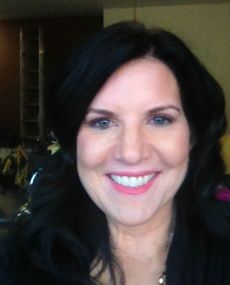 Spiritual practice is about living life consciously - and can be distilled down to these basic words: "Good Thoughts, Good Words and Good Deeds." Good thoughts, are those thoughts that open our hearts and make us feel at peace - not that nagging self-talk or voice in our heads that can tell us how "stupid" we are or how we did not do things right. These thoughts that generate the negative inner self-talk or dialogue cause strong negative emotions in our bodies that leave us in a constant state of anxiety, fear and or anger - kind of like an undertow of intense emotions about not living up to a perceived social "ideal," or our own expectations about how things "should" be. These thoughts thus can cause us to be generally more reactive, and less compassionate and forgiving of ourselves and others. So, if we can become consciously aware of our inner self talk or dialogue - good and bad - we can become more conscious of the emotions they create in our physical forms - and observe them without judgment. If we engage in the regular practice of being more conscious of our thoughts, and emotions - and just notice them - without trying to "stop" them, we will begin to understand and consciously "feel" how our thoughts effect our emotions and physical reactions. We will notice whether a thought of "you are so stupid" hits us in our throat, neck, chest, abdomen, etc. With regular practice, we will begin to have more compassion for ourselves, and negative thought patterns will diminish. So, in turn we will begin to have more compassion for others. We become less reactive to situations that come up in our lives. All of this from becoming more conscious of our thoughts - with an intention to have "good thoughts." But it takes perseverance and patience. As we become more present in our lives, we begin to see things more how they really are - not how our biased preconceptions think they are. Our whole perspective changes, and our thoughts become generally more peaceful, compassionate and loving. When we feel we have been "wronged" somehow, STAYING CONSCIOUS HELPS US TO KEEP OUR ENERGY HIGH AND NOT LOWER OURSELVES TO THE LEVEL OF UNCONSCIOUSNESS THE OTHER MAY BE ENGAGING IN! Often when we feel wronged our initial feelings are to lash out at them, but that does not feel good, and only lowers us to the level of that person. Staying conscious allows us to respond to a situation in an intelligent way instead of reacting to it out of emotion. Words are very powerful. If we tell another person something bad about someone they never met, and then they meet that person, the words we told them, will create an impression or bias against that person that must be overcome. Imagine if that meeting was for a job interview - because of the words we said, that person may not get the job. Think about how many times we have a bad impression about someone that emerges out of a somewhat "silly" interaction if we examine it later - or out of words that someone told us about them that may or may not be "true"- then we later interact in a more positive situation and become good friends. The not so good words, were very harmful. The process to having "good thoughts" above, leads to us saying good words. Instead of criticizing someone who has perhaps made some choices, that cause disruption in the lives of themselves and others, we might feel more compassionate because we know that they are simply living life in a less "conscious" way. They are not examining their own thoughts and emotions, and instead are reacting to whatever their preconceived notions of themselves are. I see this often in divorces - both seemingly "decent" people, who must make the other person an enemy in order to justify their position of hatred or anger, that lets them blame the other party for their separation. I remind people, that they played a role in their relationship coming to the place it did, and it is a good idea to become more conscious of what they are thinking about, and how it is affecting them physically - and therefore emotionally. It is their own thoughts causing the despair, hatred or anger they feel. Not the other person. These same principals apply to what we can call "petty gossip" - and we know when we are doing that. So being more conscious of our thoughts leads to us becoming more conscious of our words. Be conscious of the words you speak, they carry tremendous power, and reflect back at you and others with intense emotion. If we are conscious of our words, and say only good words except when absolutely necessary - like to protect or prevent a harm - we feel better ourselves, our emotions are more peaceful and compassionate. Having good thoughts and saying good words, frees us up to feel compassion toward others, and allows us to engage in good deeds. My mother used to tell me when I was quite young, that stealing causes us harm. She is right - it does come back and hurt us in our global perception of self. But on the other side, doing good deeds, opens our hearts and lifts our spirits. Sometimes when I am in a bad mood from the day, or just feeling "blah" I remain conscious of these feelings and thoughts - and if I have an opportunity to complement someone in a real way, and I do it, I immediately feel better. Everyone's "problems" are important to them. When we visit with others who explain a problem that may seem "petty" to us given what "we are going through" speaking through the ego - it is important to remain conscious and observe our reactions - because it opens up that compassionate side of us that helps us feel joyful. It can help to think about life experiences as opportunities to learn - that is what we are here to do! Discovering that someone lied to us, or is continuously lying to us or cheating on or stealing from us can really put this idea to the test. After getting over the initial shock, the first question we should ask is why? What is/was the motivation there? We may not get the answer to that question right away - but most of the time fear is involved. If it is something such as lying about money or cheating in a relationship - we have to dig very deep to find forgiveness and compassion. By no means am I suggesting that you "stick around" to in order to develop or find the compassion for that person in those situations. But journaling about the facts in the circumstances, the emotions we feel/felt, and what it was that made that relationship/friendship seem important to us, can really help us through the grief process, and move on in a healthy way (of course seeing a therapist in addition to this is helpful too)! If you find yourself asking "how someone could do this to me" or "how did this happen to me" - it is important to examine the facts with as little emotion as possible, so we "get" the life lesson. We can more easily do this by staying conscious and not letting our minds run off in the endless circles. Once we are able to understand what the lessons are, we will not need to attract similar circumstances into our lives again. We can check that off of our LIST of things to learn here! Exercise: We can practice by picking a situation that is not as extreme as cheating, lying or stealing money - pick something that has less of an emotional impact - like perhaps not getting invited to an event, or someone commenting that you've put on a little weight (when that would feel bad to you). If you are going through something more traumatic, like a divorce, separation, or are in a bad relationship, I highly recommend seeing a good therapist, but you can use this method in addition to doing so. When someone "wrongs" us our initial inclination is to lash out somehow. We want them to "hurt" like us. DON'T do this!!!! This is when you can pick up your journal and write down what happened from your perspective, and then you can write down all the things that you'd want to do to "lash out" without actually doing them. We can call a good friend or friends to talk it through - then we can stop and feel the emotions that arise in our bodies from the facts. Once we isolate where the emotion is in our body, we can focus our conscious attention there. Stay with it, because the location where we feel the idea of being "wronged" may move, or expand. Keep focusing on it consciously. Each time we do this, the feeling(s) in our body will start to dissipate and break up. The emotion of being wronged will loosen and we can accept the loss - the grief of it. We will begin to feel the compassion for ourselves and for the one who "wronged" us, allowing us to learn the life lesson. Depending on how big the situation was - will dictate how long this process takes. You may find you need to do this exercise several times a day for weeks, or one day might do the trick. As new ideas about what the lessons were occur to you, write them in your journal. Remember this is a process that will take as much time as needed to process the emotions. You are not alone! 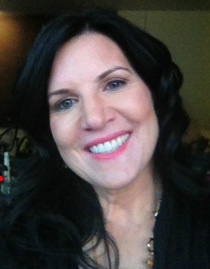 All life experiences are transient. We cannot put any experience in a bottle to experience again later. Once we accept this fact, we can really appreciate the importance of enjoying life in the moment. Life poses some interesting opportunities for us to learn. One moment we feel we have found something so beautiful and perfect, that we think nothing else could be so wonderful. This could be a close friendship, being with a parent, a child, a romantic relationship, a pet we enjoy, or even being in a particular place. Sometimes life moves fast, or changes so that we no longer have that special relationship or cannot be in that special place. Often we suffer from the pain of "losing" that person, either in life due to changed circumstances or with their passing, or we may feel detached from places that have helped us feel so wonderful. Realizing that life is a series of transient experiences, some on one side of the spectrum that are profoundly wonderful and others on the other side that seem dark and hopeless can help us rationally seek balance. The expression that we may hear when dealing with a loss, "This too, shall pass...", touches on this idea. When we are feeling the pain of loss so acutely, it seems that nothing (even wise sayings) can console us. The pain we feel over losing someone or something so precious to us can be a terribly wrenching experience that can effect us to the core, cause us to lose sleep, suffer profoundly for a long period of time, depending on how dear or close this person was, or how significant the loss was. There's nothing to do but to feel it. Feel the pain in our bodies as the waves move through us, without judging or thinking what "could have been" "might have happened differently" or "I'll never go there again." Until we feel the pain of the loss we cannot begin to accept it. Accepting the idea of the transience of experience, allows us to really understand rationally that whenever there is love, at some point there will be loss. In the case of a relationship, it can come through people divorcing or separating, or through death of one party. Just because this person leaves our lives, it does not mean that the love was not real, or the experiences were not beautiful, it simply means that the time of being together has passed - so move on to the next experience. The longer we stay dwelling over that one, the longer we will not be living our lives, open to new experiences. How can we learn to truly appreciate and accept as life experience the transience of finding perceived perfection and beauty in something outside of ourselves, and accept the inevitable grief of the loss of it? Realizing that the beauty and wonder we experience in life is not diminished by loss - the realization that the beautiful experience will always will be a part of us comes through acceptance. The agony we may feel when we experience a perceived "loss" of something dear or important to us, or have failed from our mind perspective, can be diminished if we are able to take the time to feel the emotions of the perceived loss. Much of the pain and suffering we may experience is because we are avoiding feeling the emotions of the loss in our bodies - our mind is spinning about it, and it creates pain in our bodies, that needs to be felt. This experience is also a part of us. If we practice feeling our emotions in our bodies on smaller "disappointments" when bigger ones come into our experience, we will be much more prepared. Our acceptance that the situation did not work out as we hoped, will allow us to recognize the beauty in our experience as well as the acceptance in the perceived "loss" of it. We cannot put our child's first steps into a bottle, but we can look back and think of it - a thought that opens our hearts to love. The answer is to remind ourselves that we must accept life, and life experiences for what they are - not resist them, and not look for true love and happiness outside of ourselves. True love and happiness is found within each of us. How do we do this? - If something changes in such a way as to not work out, or we lose some one close to us, or do not get the promotion we were hoping for, or lose our job and have no money to pay our bills, there is grief to be sure, but it is really our thoughts about the loss that causes our emotional turmoil.
Nothing here diminishes the strong beautiful and/or hopeful emotions you once had, and maybe can have again! Many people think once something is lost it is gone - but that is just not true. Often part of our growth and development depends on us having joint experiences to learn from. Don't let blame, or envy or regret to cloud your next steps. Losing a loved one through passing, is often about forgiving yourself and/or them. Financial difficulties and loss, is often about forgiving yourself, accepting responsibility without blaming yourself or others, and letting go of regret - so you can see the situation more clearly. FOOD FOR THOUGHT: Imagine for a moment that we are feeling that wonderful feeling of being in a love relationship with a "soulmate," for example. This person feels so dear to us we cannot imagine what life would be like without their love and acceptance. We have built up beliefs about why we love this person so much, feel tremendous peace when we are together, we feel an egoic sort of "awe" about life. Now imagine one person feels their needs are not being met, and the other does not understand why or what to do about that. Justified or not, resentment builds, and what once felt like it was the most amazing thing in the world, causes tremendous pain and suffering as it breaks apart. What is the point of all this? If we could see the inevitable suffering and pain of losing something or someone dear to us ahead of time, would we forgo the experience? Does it make the person less dear to us? I do not think so. Maybe this whole cycle, which seems to be deeply embedded in the human condition, is an opportunity for us to see that we are complete unto ourselves - we need to add nothing to ourselves to feel awe. For example, if the first party could really feel the waves of resentment in his/her body as it came through, he or she could say something at the moment. After all if the feelings have been mutual all along, there should be an assumption of goodwill - not a feeling by one party that the other is out to be inconsiderate. Then the other party thinks, well, if they can't even think of that, then that's not enough for me! I need to be with someone who always thinks of that! So that party may jump into the next relationship thinking that THAT one will be different - that one will be considerate, because I have been sharing with this person how inconsiderate that other person was.....this only starts the cycle all over again. You get the rest. So why put ourselves through all this? feeling the waves of resentment of the loss in the body, when they move through us is an effective way to transmute pain and suffering into a more peaceful state. Each time we do this, it lightens our load. It breaks up the intensity of the pain and suffering, and allows us to feel our very beingness - an "awe" of just being alive and present. What happens when we accept that the cycles we create in our lives - the highs and the lows - are dictated by our beliefs. Changing our beliefs requires us to practice and learn how to live consciously, to make immediate connections between our thoughts and the feelings such thoughts cause to our bodies. We can ask ourselves certain questions, like: 1. Why does being with that person/situation make me feel so wonderful? 2. Why does that/do those things appeal to me? 3. Is there volatility in the relationship/situation? If so, how does that make me feel? and excitement? 4. How am I contributing to the volatility? The excitement? 5. How am I contributing to the situation? What is my role? 6. How does it feel when I am not with this person or in this situation? 7. How would it feel to imagine living with this feeling on a daily basis? 8. Is there substance abuse or infidelity involved/Anger? How does that feel? 9. Am I resentful or angry? As we ask these questions, we must consider that we cannot change this person or situation, we can only change our response to it/them. That being said, in our bodies, to know our beingness. can allow us to feel a profound love for another but created by our belief about what is beautiful and perfect, we can begin to accept the transient nature of it, and learn to look within ourselves for that beauty and perfection. I am beautiful and I am perfect. So are you. I do not need anything or any one to make me feel that way. By feeling our very beingness, our aliveness, we ignite an awe that surpasses anything else. The wonder of just being alive! 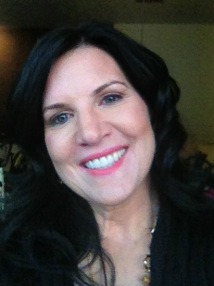 Many people live their lives in a constant state of anxiety, fear and or anger - kind of like an undertow of intense emotions about not living up to a perceived social "ideal," or our own expectations about how things "should" be. It can feel like you are digging a hole in the sand - as you dig, the walls of the hole collapse. You get glimmers of happiness during the moments when you feel aligned with your perceived social ideal and goals - but these "highs" are short-lived, because shortly after the excitement of that, the next perceived shortcoming pops up in your mind, causing us to to feel "less than" again. Left unexamined, these feelings create a "self loathing" that can cause us to engage in destructive behaviors. This can be expressed in many ways - the best known, would be something like substance abuse, emotional eating, or intense episodes of anger or frustration. Other, more subtle, and less talked about behaviors, such as creating drama to deflect (the "blame game") or going on buying binges to feel the highs of the shopping experience, are just as common as something as overt as substance abuse or anger issues, but warrants some discussion, because it is something ALL of us have witnessed either by doing it, having it done to us, or watching someone close to us do it, at some point in our lives. For example, a drama-creator might cut others down to deflect from their own unhappiness and self loathing - a person engaged in this pattern of behavior might create "enemies" that they can focus their hatred and disdain at - and this not only harms the drama creators, but people close to them. Often drama creators are unable to see their own roles in the drama that created the anger or hatred they feel - and by keeping that anger or hatred alive can harm themselves in ways similar to a substance abuser. People who get caught in this type of emotional/behavior pattern create superficial rationalizations to justify their destructive behavior, like, "people just need to know (why I'm right)!" While in reality, they really are angry with, or hate themselves, and only are able to build themselves up, by tearing others down, and making sure that everyone "agrees with" their opinions about things. Drama creators thrive on the ups and downs of their behavior, for those who live with or have drama creators in their lives, it is emotionally exhausting - it's like watching a car wreck, and after passing the "wreck" (or the last drama), they start actively looking for opportunities to create/cause the next "accident." Drama creators feel empty or unhappy after their most recent drama has come to an end. Once the emptiness sets in, drama creators find a new situation involving that hated person or situation, or wait for/create a new person or situation to focus their anger on. They often drive people away from them because people around a drama creator get "tired" of hearing about all of the "terribleness" of this person, or that. If someone close to you is often sharing victim stories or telling you about something someone did or said, in a tone of disgust or judgement, watch out! I always say (as many others before me - too many to name) that if someone is speaking badly about someone else to you, in a way that seeks your agreement on the terribleness of that person, IT IS ONLY A MATTER OF TIME BEFORE THEY WILL BE SPEAKING ABOUT YOU THAT WAY TO SOMEONE ELSE! The best way to handle interactions with a drama creator is to ignore remain in a heightened state of consciousness around them so you do not get "drawn in" and find ways to avoid them as much as possible - of course do not add to their speaking ill of others - if you must listen, say things like, "I'm sorry for you," or "I'm sorry you feel that way..." but do not add to the drama by agreeing with them, or telling them "stories" about how you were a victim in a similar drama - stay objective. As always, it is useful to create extreme examples for us to use to examine our own behavior and lives. Meaning, just because we can relate to having created drama at some point or another, to deflect from some issue we had, not everyone is a life time drama creator. We can probably all look back at situations in our lives when we were that person (but I bet most people who are reading my blog have gone through a higher level of introspection than many others). This can help us as we move forward to understand ourselves and others. With these types of examples, it's a matter of degree - how often did we - or do we, do this, and maybe we have done it in our personal lives, but not business lives, or visa versa. It is important to remember that these behaviors are habitual - and with patience and conscious attention, we can learn NOT to fall into this pattern of behavior. The first and most important step is recognizing this pattern in yourself or others - and how you respond to it. Remember too, that by forgiving someone who we think has injured us in some way, we are releasing ourselves from the binds of feeling anger, anxiety and fear toward that person or toward the situation, when we replay the event or events happening in our minds. Forgiveness does not mean we have to hug the person, or allow them into our lives - it just means we let go of the emotional charge of the events that led to us feeling vicitmized or wronged in some way. Exercise: Try to think of someone who you would consider a "drama creator." Write in your journal a recent interaction with that person, and how it made you feel at the time you were interacting with them. Then try to remember how you felt about the situation later that day, and write that down. Did you pass on any of the information they told you? If so, write down how that made you feel. Next time you see this person, stay very attentive, listen to what they are saying, and try responding with the words above, "I'm sorry for you," or "I'm sorry you feel that way..." and then allow there to be spaces between the words so you can really feel how the words they told you effected you. Write that down. Keep this practice up, until it becomes a new habit. 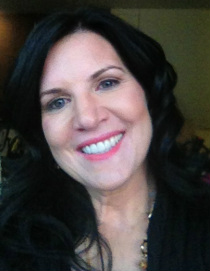 Living consciously is the single most important thing you can do to develop spiritually or psychically. All of the methods taught are aimed at helping spiritual seekers to experience life in a more conscious way. There is not one class you can take, thing you can read, practice or do that will make a person immediately understand the concepts being conveyed. Life experiences must be paid attention to, felt and processed (through writing, meditation, talking), in order to advance spiritually. The journey is a deeply personal process, that involves, commitment, listening, reading, practicing, writing, practicing some more, and then as understanding begins to blossom, we want to pay very close attention to our egos. We are trying to attune to the subtle energies that exist all around us, and interpret them. As a teacher the best we can do is to point the seeker in the right direction - and discuss and help the seeker stay on a course to optimize their development. I was listening to The Mystical Kabbalah, and Rabbi David Cooper describes the process so well from the Kabbalisitc perspective (and to get a full understanding of what he says, please do download and/or read his book!). He talks about our physical bodies and emotions as being vessels, that are always full of light. Consciousness is pure light. The more we fine tune, repair, or expand our "vessels" the more light can come in to fill our vessels. This is such a wonderful way to describe spiritual development! Paying conscious attention to life, and consciously observing our emotions, and actions, helps to fine-tune our vessels so that we can let more light in. Some problems can arise when someone is trying to "let more light in" when their "vessel" is not ready for the light, says Rabbi Cooper. What does that mean? If we open ourselves up to developing spiritually, by trying to let more light in before our "vessels" are refined by living life more consciously, we can cause more harm to ourselves and others, than benefit. We see this problem sometimes in people who want to teach others or read for others before they have developed their vessels - the messages or teachings may have some good insight - but may contain a lot of ego, like being overly dramatic or immediately warning of terrible things coming up for someone they are reading for. So the more we develop spiritually, and open ourselves up to light, the more responsibility we have to live more impeccably - with honesty, openness, lack of judgment, no gossiping, working on our vices, listening to those closest to us who we respect, being with our children, our friends in a conscious way, etc. It may start with us acknowledging THAT we need to work on some things - not everyone can admit that they have a problem. But those than can admit it, developing spiritually, and honestly "working on" making it better by being conscious about it, is one of the best things they can ever do. Most programs to help people with addictions and other problems are aimed at helping people behave more consciously. Exercise: Find a time when you have about 30-45 minutes of privacy. You might do the 6 minute meditation under the meditations tab (or use your own methods) to get into your energy body at the beginning of this exercise. Take your journal and write down some things you think you could "work on" or be better at in some way. It can be as simple as "being more conscious about interacting with my children" to "paying more attention to details at my job," to "being more conscious about when I drink alcohol." You can make a list of things as well. The first time you do this exercise, I suggest that you pick something that is less "serious" to work on. Choose one of the items you identified to work on. Write it down in your journal on the top of a new page. Then write down some recent experiences you had where you were engaged in that activity. For example, if you pick, "being more conscious with my children," think about when you were last with your children in a way that is "less than conscious" and write down what you were doing that made it so you were not so conscious with your children. It might be, "I was reviewing emails on my phone," or "computer" or "I was spinning in my mind about whether I was going to hear from someone," "I was thinking about business or my job," "I was on the phone with a someone" or "I was playing a game on my phone." You get the idea. Now write down what you could do differently next time so that you are more conscious in this activity. Using the example above, you might write, "I will put my phone down and look at my child," "I will pause the TV and let them talk with me as long as they need to," "I will shut my laptop and look at my child while he/she is talking." All this work we do to develop spiritually, is about learning to be more present in our lives. It is a continuous process, requiring commitment and patience, and above all things, the willingness to objectively observe our own "egos." It is often the case that the best advice we get is from the people closest to us. 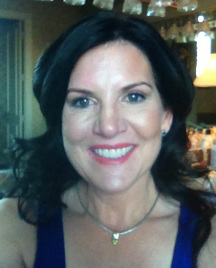 We cannot find true happiness outside of ourselves. Only by releasing our emotional attachment to everything do we experience true joy. That does not mean giving everything away, living as an aesthetic, or not pursuing interests and relationships - it simply means that we work on releasing the emotional attachment to them. This includes releasing the emotional attachments we may have to certain outcomes - whether a relationship will work out, whether we should change a job, whether to go back to school, or have children, etc. Many spiritual teachers say that by being still, we are able to realize that our minds are not the reference point of who we are. See You Are That, Gangaji, pp.4-6 (paraphrased). It is through being still that we experience true beingness. When we practice being still on a regular basis, we begin to bring stillness into our everyday interactions. When we are grocery shopping, interacting with people for work, into our personal relationships and thoughts and ideas. With the emotional charge gone, or diminished, we interact with others in a more meaningful way and our thoughts and ideas gain new deeper perspectives. This is true for memories and ideas as well. We approach life with equanamity. Without equanamity, we will continue to try to find happiness outside of us, in relationships, accumulation of physical objects, thoughts, ideas, activities or events. These things only bring us a transient sort of "happiness" that soon gets replaced with something new to go after. Think of something you "value" as a physical object. If you can hold it do that - or if it's larger, then go to be with that object. Be present. Feel the energy of the object. Notice any thoughts that arise in your mind as you examine or touch it. Write them down. After doing this for a time, answer the following questions: 1. How would you feel if that object were damaged or broken? 2. How would you feel if it were gone tomorrow? 3. Does the object being damaged or gone diminish you in any way? If so, please describe how it diminishes you as a being? 4. If the object rasises a memory of a loved one for example, does not having the object make that memory any less important? If we can pay attention our mind processes, and observe how ego tries comes back in (sense of fear and loss or sadness), it might help us to understand why we must release emotional attachments to feel true happiness. If your object had a memory of a loved one attached to it, notice how feeling sad or happy about that memory, clouds our feeling truly connected to them in a meaningful way. The feeling of sadness or happiness will overwhelm the "connection of beingness" with them. 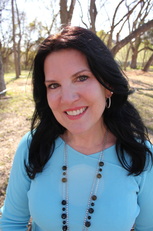 Feeling overwhelmed from all of our "to dos" or even thinking about not knowing what "to do" can cause us to spin in our minds, and in many cases, completely shut down. We often feel "alone" in our anguish - the negative spinning makes us feel separate, like no one can possibly understand what we are going through - or we talk about the problem incessantly to others, trying to justify what we do, or are going to do - to get support (and wearing them down in the process). Think about the anguish and pain we are feeling when we do this! The thoughts that rise up and spin are sending chemical signals to our bodies, causing us to feel fearful or anxious, our stress level rises, our blood pressure goes up, we might get a headache. Our minds are so involved in "solving the puzzle" that we are not paying attention to the present moment, our jobs, children, nature - we may feel disconnected. This "over thinking" of a problem or issue wears us out physically and emotionally, so that even our regular activities can overwhelm us. While some "build up" of emotion when we are making big life decisions is normal, and can even help us reach a decision (because focusing on a situation, collecting information and advice informs us, so we can reach a decision we can live with), studies have shown that we are more productive and "happy" decision-makers when we are able to take "breaks" from thinking intensely about a problem. Taking "breaks" from ruminating over a problem also opens us to receiving flashes of insight, that give us ideas that would not have come, had we anguished over and continuously turned the problem over in our minds. The "feeling alone" aspect of this can also open us up to tremendous negativity from within and without. Our own judgements and fears are activated - and we are more susceptible to criticism or judgment by others - meaning, things that would normally just roll off of us, might bother us at a deeper level (I also call this "psychic attack"). You can see how easily this emotional cyclone can effect our lives in a negative way. Many people live in this state constantly. You do not need to feel all that pain, fear and anguish anymore. Set your intentions on feeling peace and gratitude each and every day and try the following exercise to help identify some of the pressing issues that are fueling the emotional cyclone(s) active in your life right now. Try this exercise: Take a piece of paper, and write down everything that is "spinning" through your mind - be sure to leave some space in between the "to-dos" for some notes later in the exercise. This includes big and little things - from feeling sad over a loss, relationship decisions to a grocery shopping list. Just let it out, get it onto a piece of paper. Once you have it all written down, sit or lay down in a comfortable position, with the note pad or journal close by - and use the 6 minute energy body meditation to redirect your mind. If a particular thought or another urgent "to-do" pops up, crack your eyes open just enough to add it to your list, and then send the thought away on a cloud or in a bubble! Stay with the meditation. When you are finished, look at your list - triage the things you have written down by putting a number next to it indicating it's importance. As you read each item, take notes on what emotion you feel when you read it. Is it anxiety, resentment, fear, or a different emotion? Take notes next to that item about what you are feeling. Really pay attention to where that feeling is in your body - and just observe it without judgement. Now, observe the feeling in your body - and write down where in your body you feel it? Notice that as you consciously observe the feeling in your body, the emotion will dissipate and break up, so that it is no longer quite as emotionally charged as before. For larger, more important issues, it may take a number of rounds of feeling it and paying attention to the emotion in your body. But stay with it! YOU ARE NOT ALONE!!!! 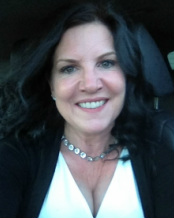 During our lives we go through many transitions. Some we may view as positive, and others negative depending on our ideas and beliefs about what that transition represents. If we consider a transition positive - like getting into our school of choice, winning a contest, falling in love, getting a new job, promotion, getting engaged or married, having a child - we will welcome the changes, feel connected to life and others in a positive way, and we may feel elated, happy emotions. Conversely, if we view the transition as negative - such as not achieving a goal we set for ourselves, losing our job, our home, getting divorced or separated, or experiencing a serious illness - we may resist the changes, and experience feelings of anger, frustration, hopelessness - we may feel separate from others, like we are somehow "damaged" or unworthy of love and respect. These feelings, either way, come from our beliefs about what is good or bad, what we "should" experience or achieve for ourselves in this life. This ever-changing cluster of beliefs IS our ego - that part of us that interfaces with the world that judges and reacts to our beliefs about how we judge ourselves and how we think others are judging us. This is not to say that our egos are bad - as I use the term "ego" here, because our ego helps us interface with the physical world and assess where we are in respect to our goals and desires. By living consciously our ego can grow and evolve in a way that helps us - ideally, our ego dissolves and becomes consciousness itself. But problems can arise with our ego when we are not living consciously, because it will hang onto beliefs and ideas about how things "should be" that may no longer serve us in a positive way. How many of you can think of a belief, perhaps one you heard over and over growing up by your parents or other family members - that when you went out into the world - were shocked to discover that perhaps your parents' beliefs were wrong? That "shock" you experienced, was your ego reacting to the belief you held - and the subsequent change in your beliefs has hopefully loosened up, or removed all together, any egoic reaction you had to any such situation. To minimize our egoic reactions to unquestioned beliefs and feel more peace in our lives, we must re-train, or re-habituate our egos to allow for positive changes to our beliefs and ideas about ourselves and others. We do this by calling on that "observer" within each of us to continuously pay attention to our emotional reactions to situations in our lives, and to ask ourselves what belief we have that is causing us to react in that particular way. We in effect, can use our emotional reactions as opportunities to become consciously aware of what belief is causing negative reactivity to rise up inside of us. Once we know what the belief is, we can question it. I can tell you numerous examples where a client may be upset with their job - a new boss is overbearing, the tasks are restructured in a way that requires more work for the same pay, or there may be a person or group of people who are gossipy and cause a lot of negativity in the office. One could get locked into the belief that they will have "failed" if they leave such a job. But I ask them to think about it differently. While often, by avoiding these difficult people as much as possible - or practicing presence with them - we could stay at a job with such issues - but more often than not, it builds until it is bad enough where the client chooses to go out and find a new job - or make another choice where they go back to school. The client may experience a great deal of negative emotion about these situations, and "hang in there" because their strong belief causes fear of their failing, or being perceived as failing, if they leave the job. So, questioning the belief that leaving the job means they have failed is important in this example - why do they believe it would be a failure to leave the job? Maybe a parent worked at his or her job for their whole working career, and as a child they heard that over and over again. Maybe the negativity the client is experiencing needs to happen and build so that the client can move on to a better position somewhere else, or go back to school to add to their skills. Without questioning the belief, the client may have felt stuck - the tremendous fear about transitioning to a new job made them feel that there was no way out, and such a person would have stayed much longer in an unhappy situation. So many end up much better off than before if they can accept the idea of change with equanimity, and look for the opportunity within the transition. Many spiritual teachers tell us that within every emotion we experience related to events in our lives that we judge either "good" or "bad" has within it the seed of the opposite emotion. What this means to me, is that when we fall in love for example - with another human being, a pet or even a life situation, and are elated - at some point, that person, pet or situation will leave us. It may be, that the love of being with another endures your life time, but one of you will pass at some point, leaving the other alone - or like anyone who has pets knows, we love them when they are with us, but at some point they too will pass away and leave you. These situations can bring in tremendous sadness and feelings of loss. Just recognizing the fact that all life experience is transient - good or bad - can help us understand why living in the moment is so important. Taking time to bring consciousness into your body while mourning a loss, or experiencing a transition, can help tremendously with the transition through the loss. Being conscious or in the present moment can help us through any transition by removing or significantly reducing our emotional reactivity to the situation. Life transitions are opportunities for growth - transcending the fears associated with these major life events, and remaining open to the changes they bring without judgment of good or bad by our ego - will allow us to more clearly see the opportunity(ies) for growth within the experience. 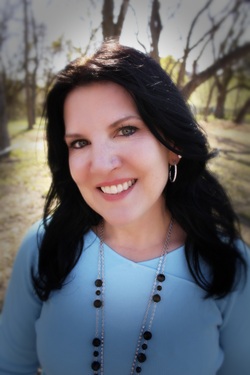 We define ourselves every day with our thoughts, words and actions. EVERY night and morning try this prayer: Dear ____(God/Spirit/etc) let me be all i can be! Show me the path, open the doors and let me see the path clearly. I am so grateful for this physical experience - thank you! I am so grateful for my life. Let me be all that I can be!!!!!!! So be it, so it is and so shall it continue to be!!!! Say this prayer, and really feel it deeply - to the core of your being! |
Tamara Brock, Intuitive Spiritual Teacher
Everyone is Psychic, and it is my mission to teach anyone who wants to learn how to develop and nurture their natural psychic abilities! Archives
November 2014
Categories
All
|
 RSS Feed
RSS Feed